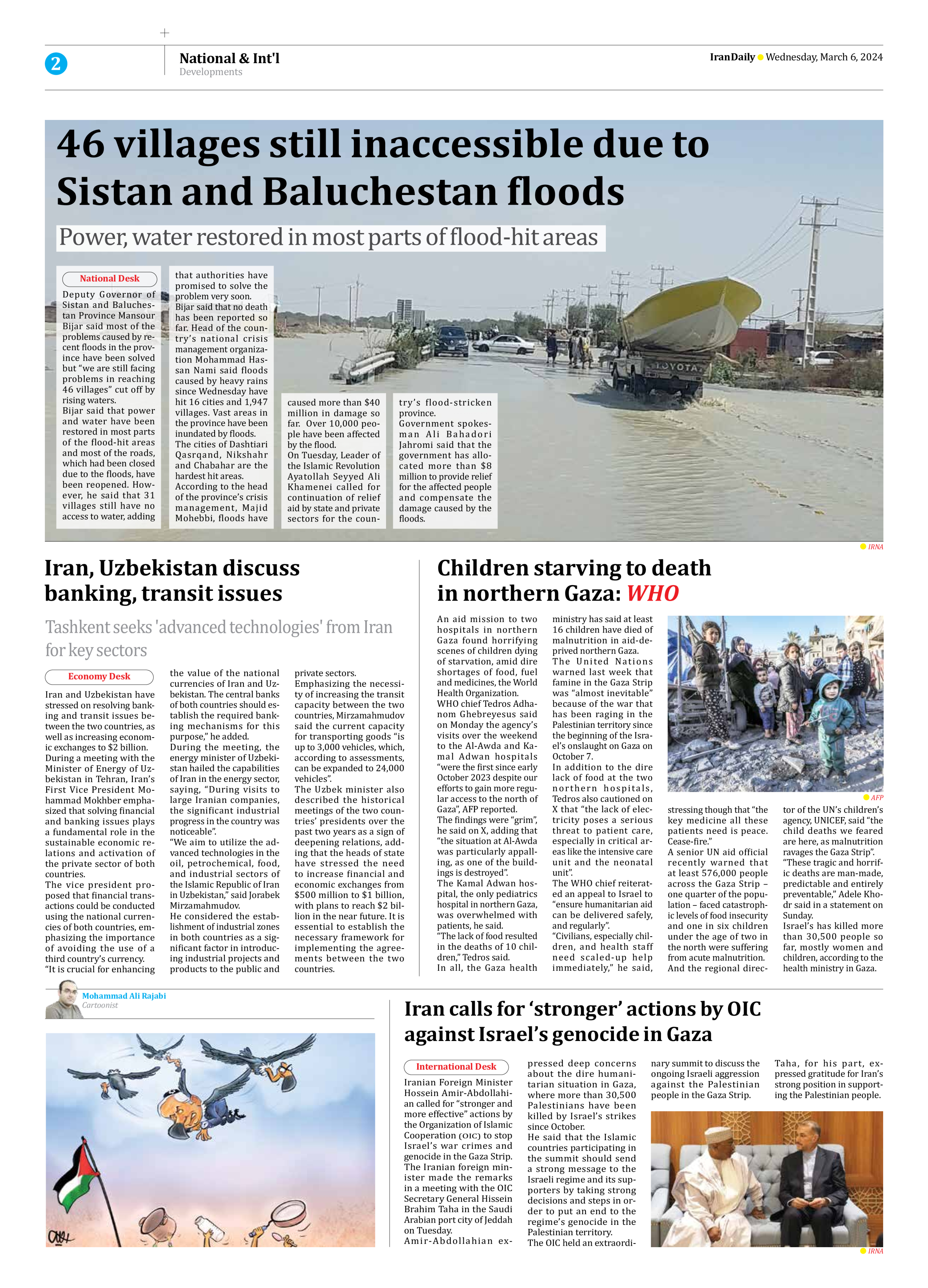
Iran, Uzbekistan discuss banking, transit issues
Tashkent seeks ’advanced technologies’ from Iran for key sectors
Iran and Uzbekistan have stressed on resolving banking and transit issues between the two countries, as well as increasing economic exchanges to $2 billion.
During a meeting with the Minister of Energy of Uzbekistan in Tehran, Iran’s First Vice President Mohammad Mokhber emphasized that solving financial and banking issues plays a fundamental role in the sustainable economic relations and activation of the private sector of both countries.
The vice president proposed that financial transactions could be conducted using the national currencies of both countries, emphasizing the importance of avoiding the use of a third country’s currency.
“It is crucial for enhancing the value of the national currencies of Iran and Uzbekistan. The central banks of both countries should establish the required banking mechanisms for this purpose,” he added.
During the meeting, the energy minister of Uzbekistan hailed the capabilities of Iran in the energy sector, saying, “During visits to large Iranian companies, the significant industrial progress in the country was noticeable”.
“We aim to utilize the advanced technologies in the oil, petrochemical, food, and industrial sectors of the Islamic Republic of Iran in Uzbekistan,” said Jorabek Mirzamahmudov.
He considered the establishment of industrial zones in both countries as a significant factor in introducing industrial projects and products to the public and private sectors.
Emphasizing the necessity of increasing the transit capacity between the two countries, Mirzamahmudov said the current capacity for transporting goods “is up to 3,000 vehicles, which, according to assessments, can be expanded to 24,000 vehicles”.
The Uzbek minister also described the historical meetings of the two countries’ presidents over the past two years as a sign of deepening relations, adding that the heads of state have stressed the need to increase financial and economic exchanges from $500 million to $1 billion, with plans to reach $2 billion in the near future. It is essential to establish the necessary framework for implementing the agreements between the two countries.







